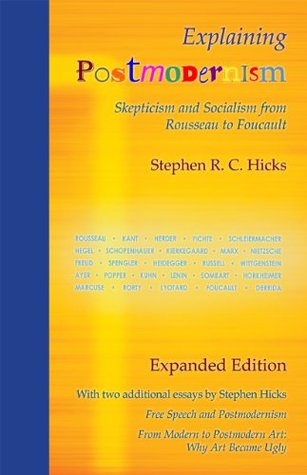For all of their differences, the empiricists and rationalists had agreed with the broadly Enlightenment conception of reason—that human reason is a faculty of the individual, that it is competent to know reality objectively, that it is capable of functioning autonomously and in accordance with universal principles. Reason so conceived underlay their confidence in science, human dignity, and the perfectibility of human institutions.
Welcome back. Just a moment while we sign you in to your Goodreads account.


